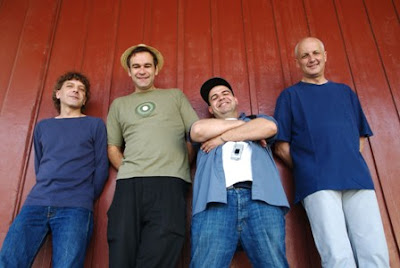By William Yaw Owusu
Monday July 27, 2009
The Ghana at Fifty saga has become a contentious issue that is going to linger on for sometime to come.
This issue is always discussed passionately depending on which political divide one belongs to.
It is very easy for those who espouse ‘probity and accountability’ to tag organisers of Ghana’s 50th Independence Anniversary as criminals. Charles Kofi Wayo, a proponent of this school calls the organizers ‘Criminals who took advantage of the Ghana at 50 celebrations to plunder state resources’, anytime he gets the chance to discuss the issue.
On the other hand, it is equally easy for those on the ‘defensive’ to claim what they see as ‘Unjustified political persecution’, a case of calling a dog a bad name to hang it.
At the centre of the attraction are two important personalities who can never be forgotten anytime questions are raised on the expenditure for Ghana at 50 pops up for discussion. They are Mr. Kwadwo Okyere Mpiani, the immediate past Chief of Staff and Dr. Charles Yves Wereko-Brobby, a former Chief Executive of the Volta River Authority (VRA) who later became the Chief Executive Officer of the Ghana at 50 Secretariat where activities for Ghana’s Golden Jubilee celebrations were coordinated.
It is on record that the Parliament of Ghana approved 20 million dollars but after everything, the cost is said to have tripled to 71.70 million Ghana Cedis.
Whether the total cost is indeed 71.70 million Ghana Cedis or not can best be explained by the two above-mentioned gentlemen.
That is why the committee set up by the government to look into the finances of Ghana at 50 must be given every encouragement and support to bring the issue to rest once and for all.
But in the mean time, both the ‘attackers’ and ‘defenders’ continue to fire salvo at each other which is needless once the committee has been inaugurated to work.
The ‘attackers’ who are mostly sympathisers of the ruling National Democratic Congress (NDC) seem to have run out patience over what they see as the government reluctance to prosecute former New Patriotic Party (NPP) government appointees for perceived corruption.
For them, it is long overdue for the government to arraign before court those NPP officials suspected to be corrupt particularly all those who had a hand in the organisation of the Ghana at 50.
But those who are on the ‘defensive’ also argue that in a democratic dispensation it is the strict application of the rule of law which reigns supreme. They expect nothing but due process from the government in the handling of issues involving corruption of past government officials.
The ‘attackers’ would want to know from the ‘defenders’ issues such as how much money was spent on the entire celebration, importation of items that never got to Ghana before the celebration, a list of projects whether completed or uncompleted, the benefits for the people among other lingering questions.
The ‘defenders’ are also not taking things lightly. They know that the best way to defend is to attack. To them there was nothing fishy in the organisation of the Ghana at 50 celebrations.
It was Mr. Mpiani who started to defend when he could no longer take what he called ‘a calculated attempt to persecute him and his political group unjustifiably.’
Until he was invited by the Bureau of National Investigations (BNI), Mr. Mpiani had continued to make every effort to establish his innocence. He now seems to have withdrawn to his shells, perhaps waiting to tell his side of the story to any court or committee, should he be invited.
Then recently, Dr. Wereko-Brobby joined the circus. He has since granted several interviews to different networks to clear his name of what he calls ‘smear campaign’ by his political opponents.
Mr. Wereko-Brobby, popularly called Tarzan dropped a bombshell on June 23, 2009, when said on a private radio station in Accra that due to the delay in the release of funds for the Ghana at 50 celebrations, he loaned his personal amount of 2 billion old Cedis to the secretariat.
Tarzan said he did the pre-financing while awaiting parliamentary approval for the budgetary allocation earmarked for the celebrations.
Tarzan said he used the 2 billion Cedis to furnish the office, pay salaries of workers, and acquire computers and other logistics and explained that but for his personal intervention, Ghana’s golden jubilee celebration would have been a fiasco. He said he did that out of a service to the nation.
Tarzan denied allegations that the Secretariat had not prepared accounts of the celebrations arguing he sent a draft copy of accounts covering the $20 million approved by Parliament for celebrations.
“We also furnished the auditing team with statements on the sources and application of funds for the corporate sponsorship”.
He further explained that the Secretariat also gave a complete statement of loans and their disbursement obtained from the AU Development Consortium which financed the construction of the Cantonments projects.
When Tarzan appeared before the sub-Transition Team on the Transfer of Executive Assets he was said to have indicated that he had reported all transactions on the project directly to the former Chief of Staff, Mr Kwadwo Mpiani, who was the supervising Minister for the Ghana at 50 celebrations.
A complete list of contractors owed by the secretariat, he said, was also presented and wondered why anybody would claim that accounts were not prepared.
The Ghana at 50 Secretariat is said to be in arrears of more than GH¢18 million to contractors. The Secretariat has reportedly already spent US$60 million and with the arrears, the expenditure so far incurred stands at US$78 million against the US$20 million which Parliament approved for the celebration in 2007.
Government auditing officials had told the sub-Transition Team on Executive Assets in January that only one out of 25 toilets for which an amount of GH¢19 million was allocated had so far been provided.

